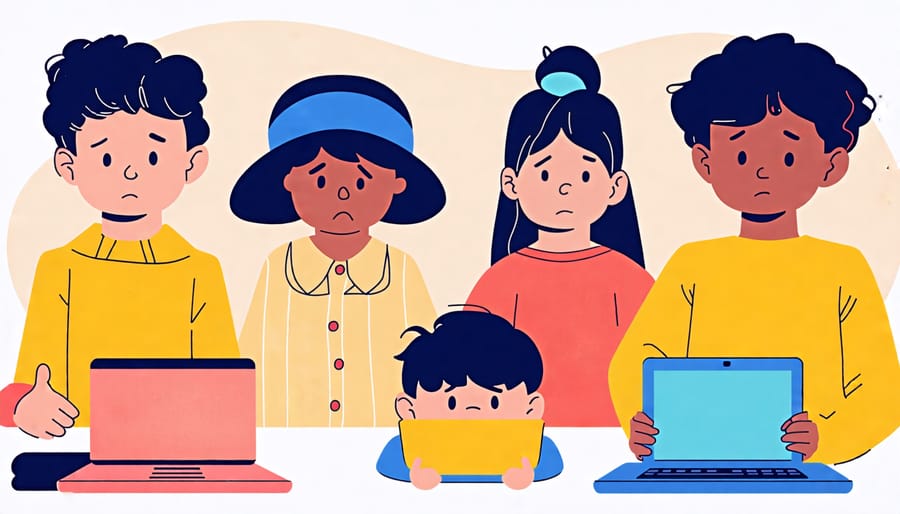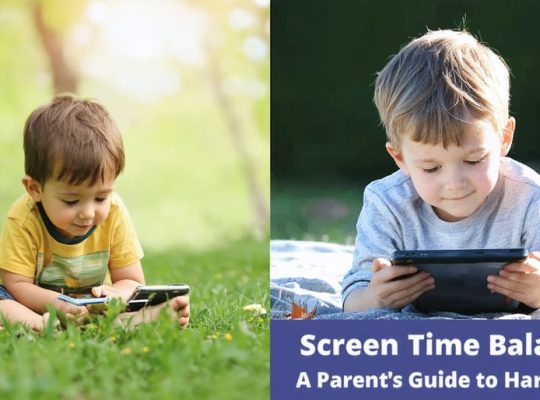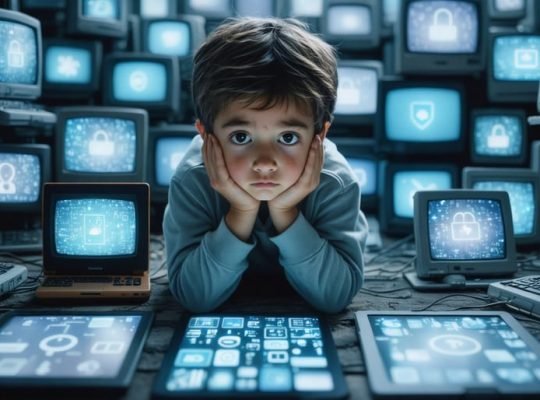Embark on a digital detox journey with Molly DeFrank, a trailblazer in reclaiming family time and children’s well-being in the digital age. DeFrank’s revolutionary approach challenges the status quo, empowering parents to take control of their family’s screen time habits. Through her own transformative experience and extensive research, DeFrank offers practical strategies and profound insights that resonate with families struggling to navigate the increasingly connected world. This article delves into the heart of DeFrank’s digital detox philosophy, exploring its potential to foster mental resilience, creativity, and stronger family bonds, ultimately paving the way for a healthier, more fulfilling future for our children.

The Impact of Digital Overload on Children
Emotional and Behavioral Challenges
The digital age has brought countless benefits, but it has also led to a rise in emotional and behavioral challenges among children. Excessive exposure to screens and digital content can contribute to feelings of anxiety, depression, and other mental health issues. Children who spend too much time on devices may struggle with social skills, attention span, and emotional regulation. Excessive screen time can also disrupt sleep patterns, which is crucial for mental well-being. Additionally, the constant stimulation and instant gratification provided by digital devices can lead to addictive behaviors and difficulty coping with real-world challenges. Parents and caregivers play a vital role in monitoring and managing children’s digital habits to promote healthy emotional development and prevent behavioral issues. By setting boundaries, encouraging offline activities, and modeling responsible technology use, families can support children’s mental health in the digital age.
Developmental Concerns
The digital age has brought unprecedented challenges for children’s development, with excessive screen time being a major concern. Molly DeFrank’s experiences highlight the potential impact of digital overload on children’s social skills, attention span, and cognitive development. Children who spend excessive time on digital devices may struggle to engage in face-to-face interactions, leading to difficulties in forming and maintaining friendships. Additionally, the constant stimulation and instant gratification provided by digital media can shorten attention spans, making it harder for children to focus on tasks that require sustained concentration, such as reading or problem-solving. Overexposure to digital content may also hinder cognitive development by reducing opportunities for creative play, imagination, and critical thinking. By recognizing these concerns and taking steps to create a balanced relationship with technology, parents and caregivers can support children’s healthy social, emotional, and cognitive growth in an increasingly digital world.
Molly DeFrank’s Digital Detox Approach
Setting Boundaries
Setting clear boundaries around digital device usage is crucial for a successful digital detox. As Molly DeFrank emphasizes, establishing rules and limits helps children understand the importance of balanced screen time. Parents can start by setting specific times for device-free activities, such as family meals, outdoor play, or bedtime routines. Creating designated tech-free zones in the home, like bedrooms or the dinner table, reinforces these boundaries. It’s also essential to model healthy digital habits as parents, leading by example and showing children the value of engaging in non-screen activities. Consistency is key when implementing these boundaries, as it helps children develop a sense of structure and self-regulation. By setting clear expectations and guidelines, parents can support their children in developing a healthy relationship with technology and prioritizing real-world connections and experiences.
Encouraging Alternative Activities
To encourage children to engage in non-digital activities, parents can explore a variety of options that promote mental well-being. One approach is to introduce creative pursuits like painting, drawing, or crafting, which allow children to express themselves and develop their imagination. Outdoor activities such as nature walks, gardening, or playing in the park can provide a refreshing change of pace and help children connect with the natural world. Engaging in physical activities like sports, yoga, or dance can boost endorphins and improve overall mood. Reading books, storytelling, and participating in family board game nights can foster bonding and stimulate cognitive development. Encouraging children to socialize with friends through playdates or joining clubs can help build interpersonal skills and reduce feelings of isolation. By offering a diverse range of non-digital activities tailored to their interests, parents can support their children’s mental well-being and help them develop a healthy balance in their daily lives.
Leading by Example
Parents play a crucial role in guiding their children’s digital habits. By modeling healthy behaviors, such as setting boundaries around screen time, engaging in meaningful offline activities, and practicing mindfulness, parents can inspire their children to develop a balanced relationship with technology. It’s essential for parents to lead by example, demonstrating the importance of face-to-face communication, creativity, and physical activity. By creating a home environment that prioritizes human connection and encourages a variety of experiences, parents can help their children navigate the digital world with resilience and self-awareness. Remember, children learn best by observing and mimicking the healthy digital habits modeled by the adults in their lives.
Benefits of a Digital Detox for Children
Improved Emotional Regulation
A digital detox can have a profound impact on children’s emotional well-being. By taking a break from the constant stimulation and social pressure of digital devices, children can learn to better identify and manage their emotions. Without the distraction of screens, they have more opportunities to practice mindfulness, self-reflection, and healthy coping strategies. This increased self-awareness and emotional regulation can help children reduce stress, anxiety, and feelings of overwhelm. They may also develop greater resilience and adaptability in the face of challenges. Moreover, the time spent in nature, engaging in creative activities, or connecting with loved ones during a digital detox can further promote a sense of calm, joy, and belonging. By creating a supportive environment for emotional growth, a digital detox empowers children to build a strong foundation for lifelong mental health and well-being.
Enhanced Social Connections
Reducing screen time can have a profound impact on children’s social connections and relationships. When children spend less time absorbed in digital devices, they have more opportunities to engage in face-to-face interactions with family and friends. This fosters the development of essential social skills, such as empathy, active listening, and effective communication. Molly DeFrank, a mother and advocate for digital detox, has witnessed firsthand how her children’s relationships with each other and their parents have flourished since implementing screen-time limits. Children who participate in a digital detox often rediscover the joys of playing together, sharing stories, and creating lasting memories. By prioritizing real-world connections over virtual ones, children learn the value of genuine human interaction and build stronger, more meaningful relationships that will serve them well throughout their lives. As parents and caregivers, we have the power to model and encourage healthy social habits that will benefit our children’s mental and emotional well-being.

Conclusion
In conclusion, implementing a digital detox for children can have significant positive impacts on their mental health and overall well-being. By setting healthy boundaries around screen time, fostering real-world connections, and encouraging creative pursuits, parents can help their children develop a more balanced relationship with technology. Remember, it’s never too late to start making changes that prioritize your child’s emotional and social development. We encourage you to consider trying a digital detox in your own family and experiencing the benefits firsthand. Together, we can create a supportive environment that allows children to thrive in the digital age while maintaining strong, meaningful connections with the world around them.







